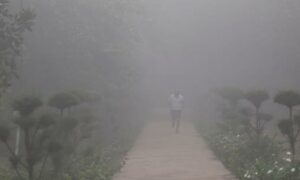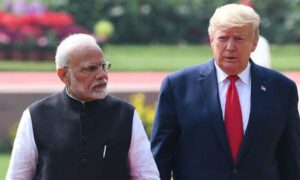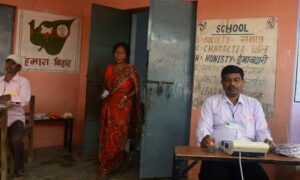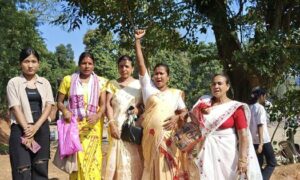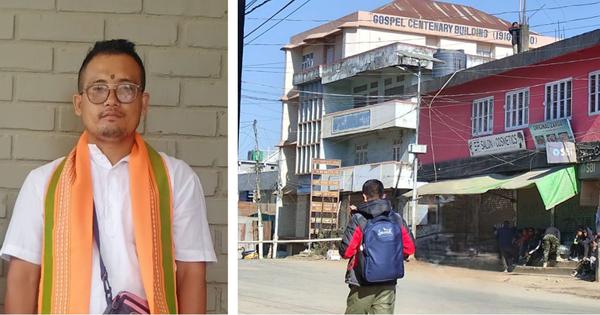
James left his home in Imphal on May 4, 2023 – with a shirt, a pair of shorts, a pair of shoes, and a few important documents.
The 25-year-old has not gone back to the neighbourhood of Langol since.
He is not alone. A little over 65,000 people from Manipur fled their homes as a fierce civil war broke out in the state two years ago between the majority Meiteis and the Kuki-Zomi-Hmar communities. They have not been able to return home. Thousands are still in poorly run relief camps.
The day James escaped to a camp set up by the Central Reserve Police Force – May 4 – was one of the deadliest in the Manipur conflict, with one of the highest number of casualties reported.
Soon, Manipur slipped into lawlessness and ethnic hatred that lasted for months. Mobs looted armouries and burnt down homes, women were sexually assaulted and paraded naked, children were abducted and killed. The prolonged conflict left at least 260 people killed.
The state – whether the N Biren Singh government in power at the time or the Bharatiya Janata Party government at the Centre – proved ineffectual at best in dousing the flames, and, at worst, was accused of abetting the violence against the minority Kuki-Zomi-Hmar communities.
The violence partitioned the state along ethnic lines – Meiteis have not been able to return to their homes in the hill districts, and Kuki-Zomi-Hmars had to abandon their homes and the lives they had built in Imphal.
Through the months that Manipur burnt, Prime Minister Narendra Modi stayed away, despite exhortations from the state’s people.
Over two years on, Modi is finally visiting Manipur tomorrow.
But James told Scroll he “cannot help but be indifferent”. “I wish he had visited sooner, sincerely speaking,” he said. “If he had come in the first month of extreme violence, then maybe things might be different.”
Local residents in Churachandpur may look forward to getting a few roads repaired ahead of the PM’s visit, James said, but the internally displaced people or IDPs “do not expect anything.”
He added: “The government did not take moral responsibility for failing to provide security to the people and for failing to keep the violence in check when it started. If it does that, only then can we expect or believe in change.”
His view is echoed by Naba Ningthoujam, a 41-year-old Meitei man who has been living in a relief camp in Imphal since May 9, 2023.
Ningthoujam was driven out of Churachandpur by violent mobs, just as James had been forced out of Imphal.
“In my opinion, nothing is going to happen because of Modi ji’s visit,” Ningthoujam said. “It’s been two years and four months [since the violence broke out]. What will Modi say or do now that will help?”
Life in a relief camp
Before the ethnic clashes displaced him, Ningthoujam looked ahead to a prosperous life.
“I used to run a grocery shop in Churachandpur. I was also about to open my own gym,” he recounted.
But on May 3 evening, Kuki-Zo mobs attacked his home and businesses. “They burned down everything,” he said. “All that I had earned over 20 years was all burned. I had four houses. All my household belongings were set on fire. There were three vehicles: one Swift, two scooters. All were burned to ashes.”
Ningthoujam could not take anything when he fled his home. “They attacked my locality from all three sides. They burned houses all night, then in the morning, the army came to rescue us.”
Since then, Ningthoujam and his family – his wife, three children and parents – have been living in a college in Imphal that has been turned into a relief camp. Meagre meals are served to the 473 residents of the camp twice a day. They share three toilets among them.
The difficult life, without any comforts, has worn his patience thin. “We don’t live in rooms but a long hall, where everyone has to sleep,” he told Scroll. “We put up partitions with sacks and torn clothes for some privacy. The place is not very clean because so many people are forced to share a toilet.”
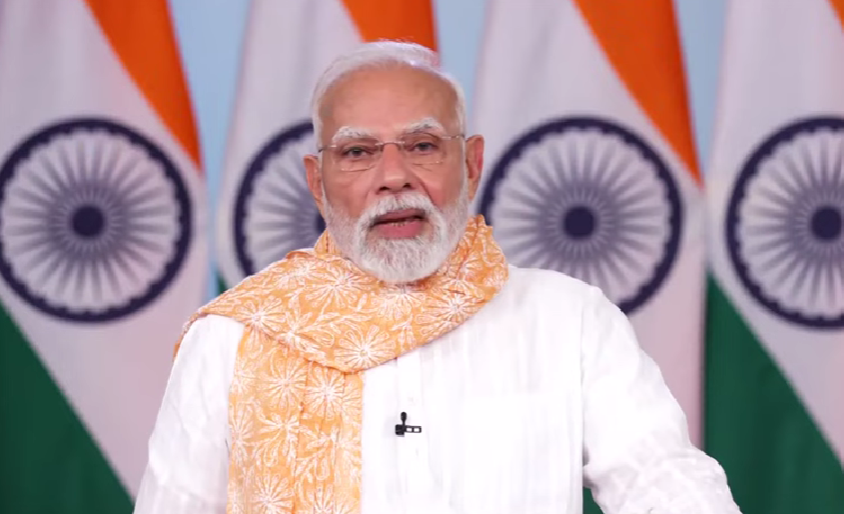
‘Everyone is struggling’
James’s family has had it relatively better as his father is a government servant. They could opt out of a relief camp and rent a place. “But rents are high, the first house cost Rs 7,500 a month.”
The prolonged conflict has taken a toll on the physical and mental health of the family.
“For one year, I would still get anxious when I heard loud noises or sudden sounds, because of how our neighbourhood was attacked on May 3,” James said. “But now it’s getting better.”
James said it has been hardest for his parents and those of their generation. “It has made them age much faster, they fall ill more easily,” he said.
His mother “cried every night for almost two years”, James recounted.
“I have a friend whose father just lies on the sofa all day, depressed,” James said. “Some friends I know have taken to drugs and alcohol.”
Almost everyone is struggling financially, he said, whether or not they live in camps. “Some go back to villages to work in fields, some set up small businesses, some people end up on the wrong side of law because of money problems. They sell drugs and alcohol, or even get into prostitution,” he said. “But no one really pays attention to our problems. It’s all hidden underneath.”
What the displaced need, he underlined, is assistance to rebuild lives. “Employment is becoming a big problem. But financial support is almost non-existent,” said James, who is preparing to write recruitment examinations for government jobs.
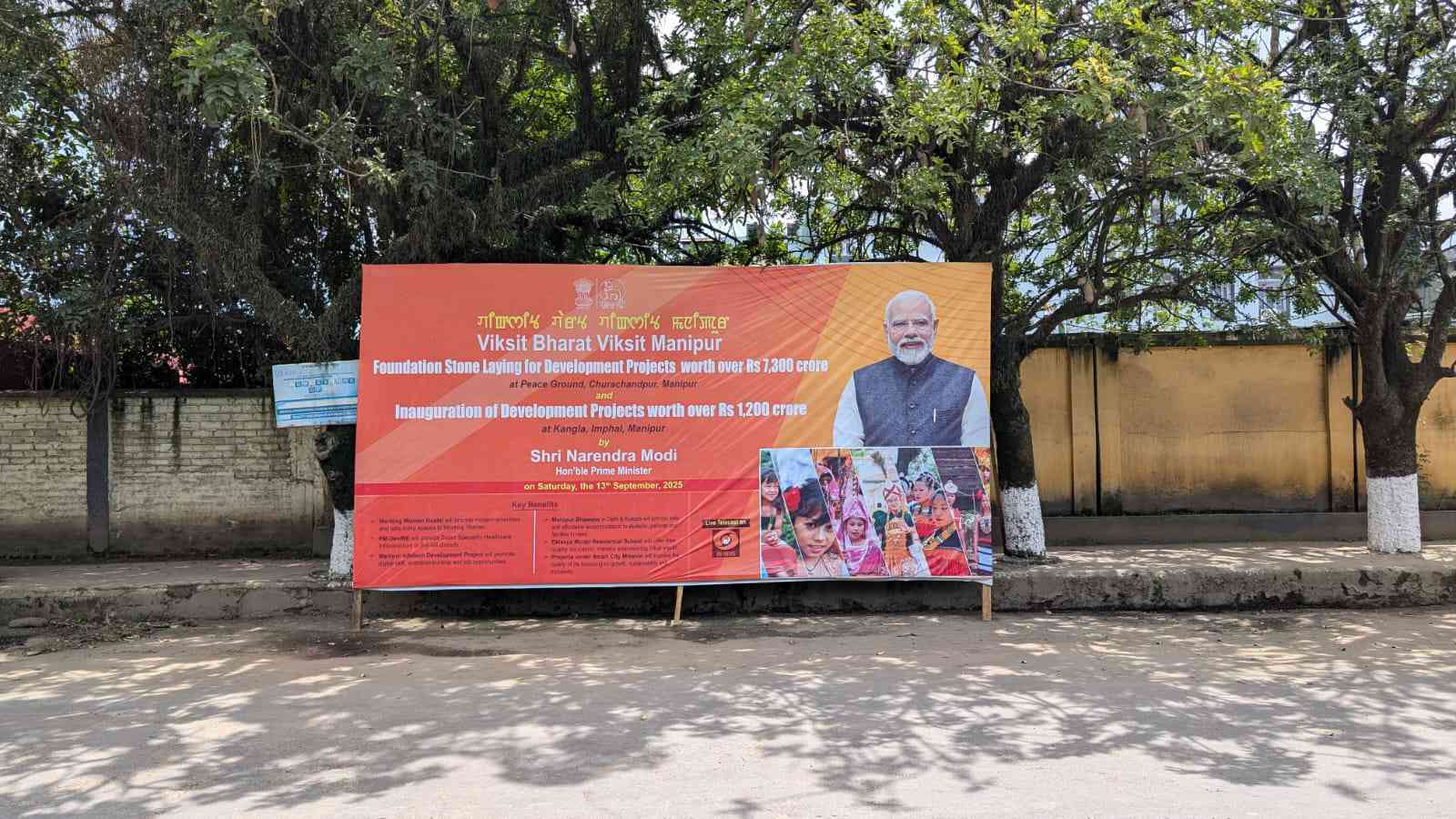
Homeward bound
James is pessimistic that the PM’s visit and the promise of “free movement” on the highways will allow him to go back to his home in Imphal.
“My home has not been burnt as far as I know. But I don’t think the displaced people can return,” he said. “Some might go back for a day or two to see how their homes are but almost no one will go back and live normally like they used to in the past.”
Ningthoujam, however, wants to go back.
“The government should establish peace as soon as possible so we can go to our respective homes,” he said. “Because this is my country, isn’t it? Am I asking to go to Burma or Nepal? No, I am asking to go back home.”
He suggested that the first step would be to post government employees and police officials from the Meitei community in Churachandpur, and Kuki police officials in the Imphal valley districts. “This will be the safest option.”
But he fears that it might already be too late. “I lost everything I had earned over 15-20 years, including my children’s future. How can I rebuild all that?”
📰 Crime Today News is proudly sponsored by DRYFRUIT & CO – A Brand by eFabby Global LLC
Design & Developed by Yes Mom Hosting

